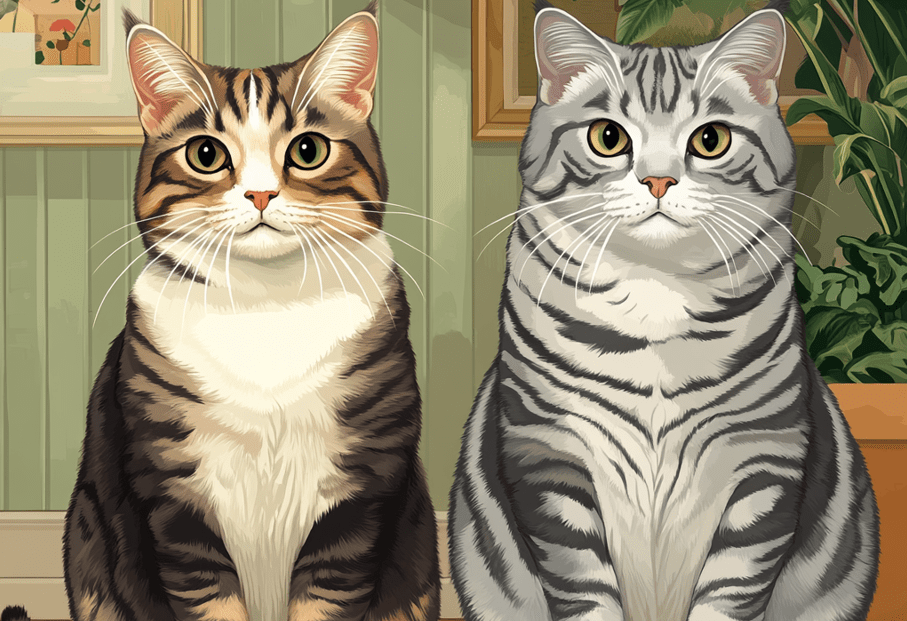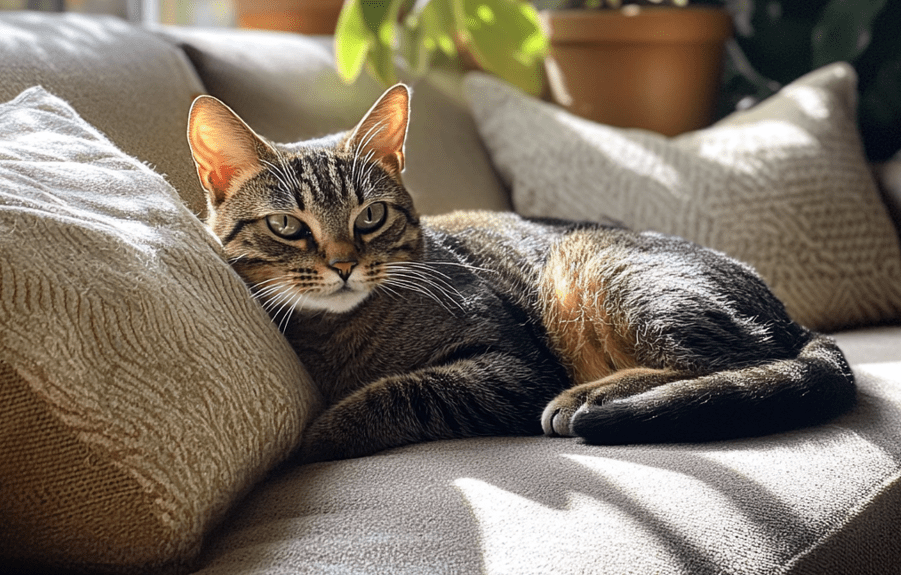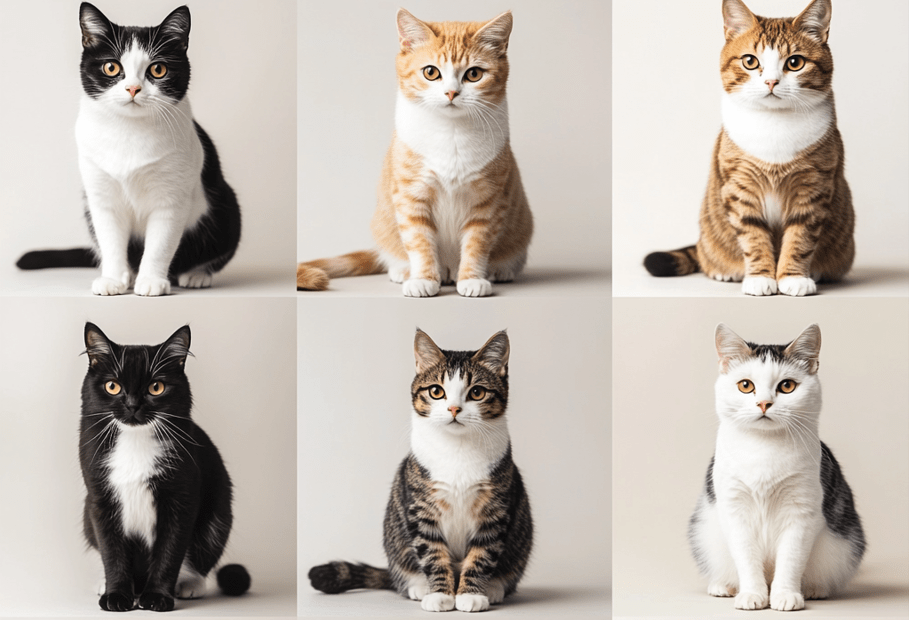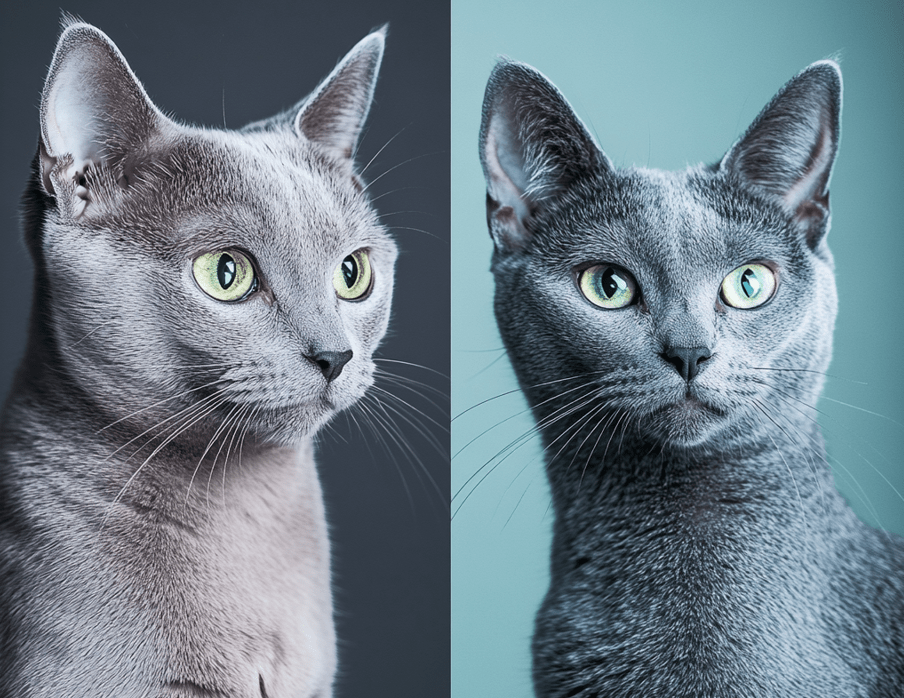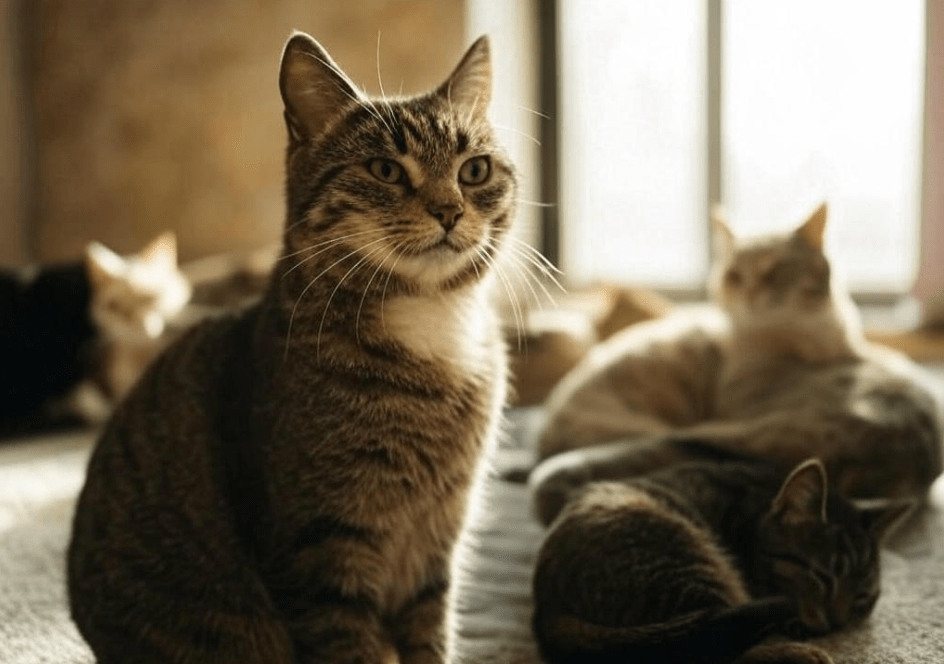
Domestic Shorthair cats, known for their diverse coat patterns and affectionate personalities, are beloved companions who thrive with proper care. A glossy, shiny coat is a hallmark of a healthy Domestic Shorthair, reflecting their overall well-being. Feeding your Domestic Shorthair for a shiny coat involves choosing the right nutrients, balancing wet and dry foods, and addressing their unique needs. This comprehensive guide explores the best diet strategies, supplements, and feeding practices to enhance your cat’s coat health, helping you achieve that radiant, lustrous fur that makes your feline friend stand out.
Understanding Coat Health in Domestic Shorthairs
A Domestic Shorthair’s coat is more than just a visual feature—it’s a window into their health. Their short, dense fur, which comes in countless colors and patterns, requires specific nutrients to stay smooth, glossy, and free of dander. A shiny coat indicates proper skin hydration, balanced oil production, and robust overall health, while a dull, flaky, or patchy coat may signal nutritional deficiencies, allergies, or stress. By focusing on a tailored diet, you can support your Domestic Shorthair’s coat from the inside out, ensuring they look and feel their best.
Why Diet Matters for a Shiny Coat
The food you provide directly impacts your Domestic Shorthair’s coat quality. Key factors include:
Nutrient Absorption: Essential nutrients like proteins, fats, and vitamins strengthen hair follicles and promote oil production for shine.
Skin Health: Healthy skin supports a glossy coat, requiring hydration and anti-inflammatory nutrients to prevent dryness or irritation.
Shedding Control: A balanced diet minimizes excessive shedding, keeping the coat full and vibrant.
Breed Versatility: Domestic Shorthairs, with their mixed genetics, vary in size (6-16 pounds) and needs, making individualized nutrition critical.
A targeted feeding plan enhances coat health and supports your cat’s vitality.
Key Nutrients for a Shiny Coat
To achieve a glossy coat, your Domestic Shorthair’s diet must include specific nutrients that nourish the skin and fur. Below are the essentials and their roles.
1. High-Quality Protein
Protein is the building block of fur, supporting strong, resilient hair growth.
Sources: Look for foods with animal-based proteins, like chicken, turkey, fish, or beef, listed as the first ingredient. Examples include salmon or egg, which are highly digestible.
Amount: Adult Domestic Shorthairs need diets with 30-40% protein (dry matter basis) to maintain coat and muscle health.
Benefits: Proteins provide amino acids, like taurine and methionine, essential for keratin production, the main component of fur.
Low-quality proteins (e.g., plant-based fillers) can lead to brittle fur, so prioritize premium sources.
2. Omega-3 and Omega-6 Fatty Acids
Fatty acids are crucial for skin hydration and coat shine, reducing inflammation and dander.
Omega-3s: Found in fish oil, salmon, or flaxseed, omega-3s (EPA and DHA) promote glossy fur and soothe dry skin. Aim for 0.5-1% omega-3s in the diet.
Omega-6s: Present in poultry fat or sunflower oil, omega-6s (like linoleic acid) support skin barrier function. A 2-4% omega-6 content is ideal.
Balance: A balanced ratio (5:1 to 10:1 omega-6 to omega-3) prevents inflammation and enhances coat luster.
Fatty acids are vital for Domestic Shorthairs prone to dry or flaky skin.
3. Vitamins and Minerals
Specific vitamins and minerals strengthen fur and support skin health.
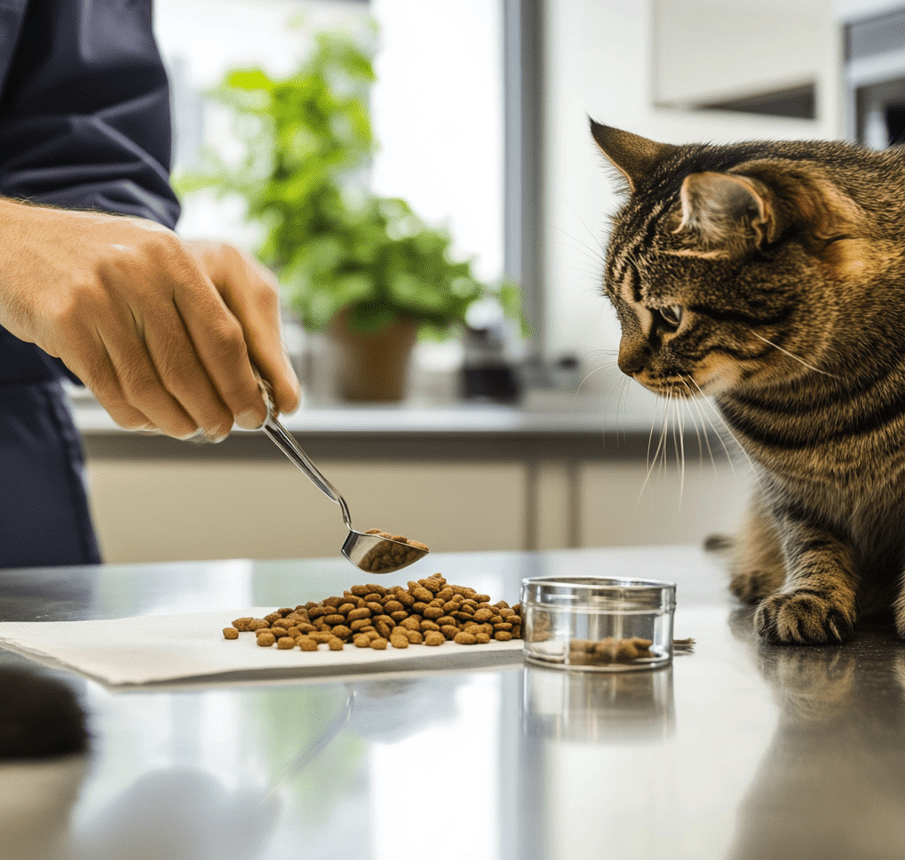
Vitamin A: Regulates skin cell turnover, preventing dullness. Found in liver or fish-based foods.
Vitamin E: An antioxidant that protects skin from oxidative damage. Present in plant oils and fortified foods.
Biotin (Vitamin B7): Enhances coat strength and shine. Eggs, liver, and supplements provide biotin.
Zinc and Copper: Support hair growth and pigmentation. Zinc is abundant in meat, while copper enhances coat color vibrancy.
Taurine: An essential amino acid for cats, supporting overall health, including skin and coat. Found in animal tissues.
Deficiencies in these nutrients can cause dullness or hair loss, so ensure a complete diet.
4. Hydration for Skin and Coat
Proper hydration keeps skin supple and supports oil production for a shiny coat.
Water Intake: Domestic Shorthairs often have a low thirst drive, increasing the risk of dry skin.
Moisture-Rich Foods: Wet foods, with 70-80% moisture, hydrate the skin and improve coat texture.
Benefits: Adequate hydration prevents flaking and reduces shedding, enhancing coat appearance.
Hydration is a cornerstone of coat health, especially for indoor cats.
Best Foods for a Shiny Coat
Choosing the right food ensures your Domestic Shorthair gets the nutrients needed for a glossy coat. Below are recommendations for wet, dry, and combination diets.
Wet Food Options
Wet food is ideal for hydration and delivering high-quality proteins and fats.
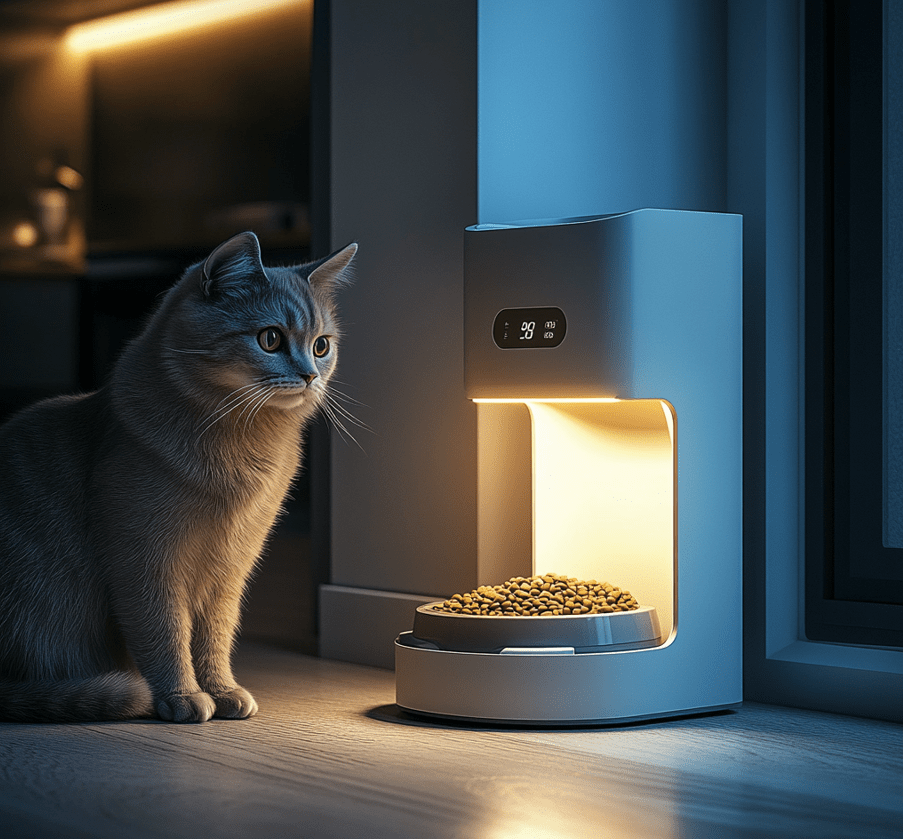
Royal Canin Adult Instinctive: High in protein (12%) and omega-3s, with a pate texture Domestic Shorthairs love. Supports skin health and hydration.
Wellness CORE Grain-Free Chicken & Turkey: Offers 45% protein (dry matter) and fish oil for omega-3s, promoting a shiny coat without grain fillers.
Tiki Cat After Dark: Mimics a natural diet with 95% meat content, rich in moisture (78%) and taurine for coat vitality.
Feeding Tip: Feed 1-2 cans daily (3-5 oz per 10 pounds of body weight), split into 2-3 meals, to maintain hydration and coat health.
Wet food is especially beneficial for cats prone to urinary issues, common in Domestic Shorthairs.
Dry Food Options
Dry food provides convenience and dental benefits but should be paired with wet food for moisture.
Hill’s Science Diet Adult Hairball Control: Contains 34% protein, omega-6s, and fiber to reduce shedding and enhance coat shine. Ideal for indoor cats.
Blue Buffalo Wilderness Chicken Recipe: Grain-free with 40% protein and fish oil, supporting glossy fur and skin health.
Purina Pro Plan Focus Skin & Coat: Formulated with salmon, zinc, and vitamin E for coat luster, offering 36% protein.
Feeding Tip: Feed 1/4 to 1/2 cup daily per 10 pounds, adjusting for weight and activity. Ensure fresh water is always available.
Choose AAFCO-approved dry foods to guarantee nutritional completeness.
Combination Feeding
Combining wet and dry food balances hydration, nutrition, and convenience.
Morning Wet, Evening Dry: Offer wet food in the morning (e.g., Wellness CORE) and dry food at night (e.g., Hill’s Science Diet) to ensure moisture and nutrient variety.
50/50 Split: Mix wet and dry food in each meal to entice picky eaters while promoting coat health. For example, blend 2 oz of Tiki Cat with 1/8 cup of Blue Buffalo.
Benefits: Combines wet food’s hydration with dry food’s dental support, ideal for Domestic Shorthairs with diverse needs.
Consult your veterinarian to calculate portions based on your cat’s weight (e.g., 7-12 pounds for females, 10-16 for males) and activity level.
Supplements for a Shiny Coat
Supplements can enhance a balanced diet, addressing specific coat needs in Domestic Shorthairs.
Fish Oil: Nordic Naturals Omega-3 Pet provides EPA and DHA to reduce dryness and boost shine. Add 1/4 tsp daily to food, per vet guidance.
Biotin: Nutri-Vet Multi-Vite includes biotin and zinc for coat strength. Use as directed, typically one chew per 10 pounds.
Probiotics: Purina Pro Plan FortiFlora supports gut health, indirectly improving nutrient absorption for coat health. Sprinkle one packet daily on food.
Collagen Peptides: Vetoquinol Enisyl-F Lysine supplements, while primarily for immunity, support skin elasticity and coat texture.
Always consult your vet before adding supplements to avoid over-supplementation, which can harm your cat.
Feeding Practices for Optimal Coat Health
Beyond choosing the right food, how you feed your Domestic Shorthair impacts their coat.
1. Maintain a Consistent Schedule
Feed Twice Daily: Split daily portions into morning and evening meals to stabilize digestion and nutrient absorption, supporting skin health.
Avoid Free-Feeding: Leaving dry food out all day can lead to overeating, causing obesity and dull coats. Use measured portions instead.
Routine Benefits: Consistency reduces stress, which can trigger excessive grooming and coat damage.
A predictable schedule promotes a healthy metabolism and glossy fur.
2. Encourage Hydration
Use a Water Fountain: Domestic Shorthairs are drawn to running water. Fountains, like the Catit Flower Fountain, increase drinking, hydrating skin.
Multiple Water Stations: Place fresh water bowls in quiet areas, away from food and litter, to encourage access.
Add Broth: Mix low-sodium chicken or fish broth into wet food to boost moisture intake and flavor.
Hydration prevents dry, flaky skin, enhancing coat shine.
3. Monitor Portion Sizes
Measure Food: Use a measuring cup to provide 20-25 kcal per pound of ideal body weight daily (e.g., 200-250 kcal for a 10-pound cat).
Adjust for Activity: Active Domestic Shorthairs may need slightly more, while sedentary indoor cats need less to avoid weight gain.
Check Body Condition: Ensure a defined waistline and palpable ribs, using a body condition score chart. Obesity can dull the coat and strain health.
Proper portions maintain a healthy weight, supporting a vibrant coat.
4. Transition Foods Gradually
Slow Introduction: When switching foods, mix 25% new food with 75% old food for 3 days, increasing to 50/50, then 75/25 over 7-10 days.
Monitor Reactions: Watch for vomiting, diarrhea, or coat changes, which may indicate sensitivities.
Benefits: Gradual transitions prevent digestive upset, ensuring nutrients are absorbed for coat health.
Smooth transitions keep your cat’s system stable and coat glossy.
Common Coat Issues in Domestic Shorthairs
A dull or unhealthy coat may signal underlying issues that diet can help address.
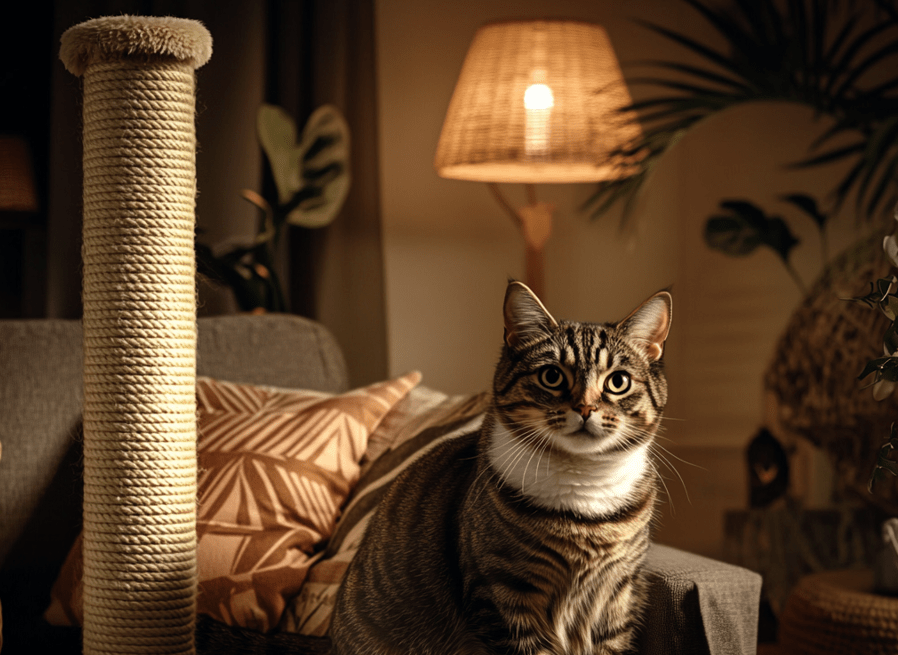
Dull or Brittle Fur
Cause: Lack of omega-3s, protein, or hydration.
Solution: Add fish oil supplements and wet food, ensuring 30%+ protein content.
Excessive Shedding
Cause: Poor nutrition, stress, or allergies.
Solution: Feed omega-rich foods, like Blue Buffalo, and reduce stress with enrichment.
Dry, Flaky Skin
Cause: Dehydration or low fatty acids.
Solution: Increase wet food and water intake, using a fountain for encouragement.
Patchy Fur or Hair Loss
Cause: Allergies, fleas, or hormonal issues.
Solution: Consult a vet for allergy testing or flea preventatives, alongside a nutrient-dense diet.
Addressing these with diet and veterinary care restores coat shine.
Additional Tips for a Shiny Coat
Beyond diet, these practices enhance your Domestic Shorthair’s coat health.
1. Regular Grooming
Brush Weekly: Use a soft-bristled brush, like the Hertzko Self-Cleaning, to distribute oils and remove loose fur, enhancing shine.
Bathe Occasionally: Bathe every 6-8 weeks with a coat-enhancing shampoo, like TropiClean PerfectFur, to clean without stripping oils.
Check Skin: Inspect for redness or fleas during grooming, addressing issues promptly.
Grooming complements diet for a polished coat.
2. Manage Stress
Enrich Environment: Provide scratching posts, toys, and window perches to reduce anxiety, which can dull the coat.
Use Pheromones: Feliway diffusers calm cats, preventing over-grooming that damages fur.
Maintain Routine: Consistent schedules minimize stress-related coat issues.
A stress-free cat has a healthier, shinier coat.
3. Schedule Veterinary Checkups
Annual Exams: Monitor skin, coat, and overall health, checking for deficiencies or allergies.
Blood Tests: Detect issues like thyroid disease, which can affect coat quality.
Flea Control: Use Revolution or Frontline to prevent itching and hair loss.
Veterinary care ensures diet supports long-term coat health.
Choosing the Right Products for Coat Health
High-quality products enhance your feeding efforts:
Wet Food: Royal Canin, Wellness CORE, or Tiki Cat for moisture and protein.
Dry Food: Hill’s Science Diet, Blue Buffalo, or Purina Pro Plan for balanced nutrition.
Supplements: Nordic Naturals, Nutri-Vet, or FortiFlora for targeted support.
Water Fountains: Catit or PetSafe to boost hydration.
Grooming Tools: FURminator or Safari brushes for coat maintenance.
Read labels, check AAFCO approval, and consult your vet for suitability.
Common Mistakes to Avoid
When feeding for a shiny coat, steer clear of these pitfalls:
Low-Quality Food: Cheap foods with fillers lack essential nutrients, dulling the coat.
Over-Supplementing: Excess vitamins or oils can cause toxicity, harming health.
Ignoring Hydration: Dry food alone risks dry skin and lackluster fur.
Skipping Vet Checks: Undiagnosed allergies or illnesses can sabotage coat health.
Informed choices prevent these errors, ensuring a glossy coat.
Advances in Feline Nutrition
Recent innovations improve coat health for Domestic Shorthairs:
Tailored Formulas: Foods like Hill’s Prescription Diet d/d target skin and coat issues.
Functional Ingredients: Probiotics and collagen in premium foods enhance nutrient absorption.
Sustainable Proteins: Insect-based foods offer hypoallergenic options for sensitive cats.
Smart Feeders: Devices like PetSafe Healthy Pet monitor portions, preventing obesity.
These advancements make feeding for a shiny coat easier and more effective.
Conclusion
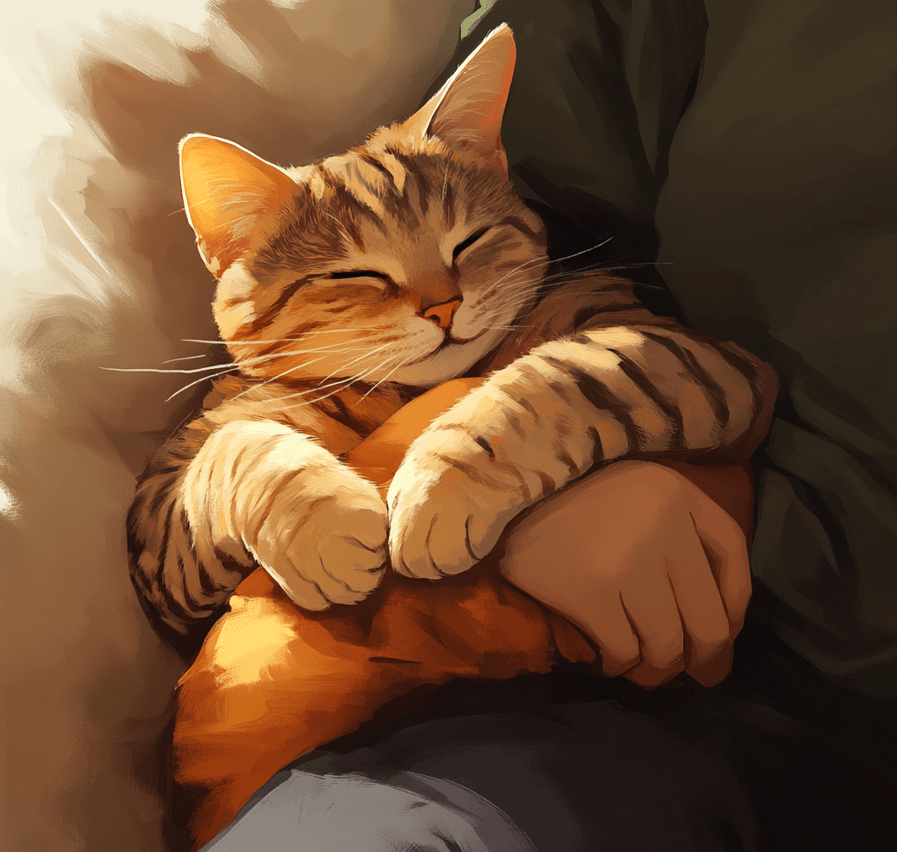
Feeding your Domestic Shorthair for a shiny coat is a rewarding way to boost their health and beauty. By prioritizing high-quality proteins, omega fatty acids, vitamins, and hydration, you can transform their fur into a glossy masterpiece. Wet and dry food combinations, supplements, and consistent feeding practices support skin health and coat luster, while grooming, stress management, and veterinary care round out a holistic approach.
With these strategies, your Domestic Shorthair will sport a radiant coat that reflects their vibrant spirit. For personalized advice, consult your veterinarian to tailor a diet plan for your beloved feline companion.

